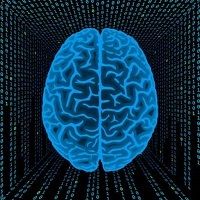New Target Seen for Preventing Neurodegeneration
Iron buildup in the brain may be related to the development of neurodegenerative diseases. Researchers have found the mechanism leading to this iron accumulation, at least in mice.

Researchers have already observed that iron accumulates in the brain as people age. The buildup of this metal may cause cellular damage due to increased oxidative stress. A research team from the Feinberg Cardiovascular Research Institute at Northwestern University, Chicago, IL, did a mouse study to try to find the mechanism involved.
Reporting at the American Heart Association 2015 Scientific Sessions in Orlando, FL, Tatsuya Sato and colleagues found that aged mice (defined as 22 months) had more iron in their brains than young mice (4 months old).
The type of iron was different depending on age, with more non-heme iron found in the older mice. Levels of iron in other body tissues was unaltered in the older mice.
"This was associated with increased ferritin levels in the brain," they said. Ferritin is an iron-storage protein.
To study the mechanism at work in the buildup, they measured the mRNA levels of various proteins involved in iron homeostasis and learned that levels of hepcidin and tranferrin receptor-2 were increased in the brains, but not in the livers of the older mice.
Hepciden is generally produced in the liver and functions to reduce intestinal iron uptake. But hepcidin is also detected in other tissues, such as the brain and heart.
To determine whether the increase in hepcidin in the brain affects iron homeostasis, they measured the levels of ferroportin-1 in the brain, and found it was significant reduced in the older mice.
They concluded that iron builds up in the brain because ferroportin-1 levels drop.
The implication for future research is that "targeting hepcidin may lead to novel therapies for age-related interdependent disorders," they wrote.
Their research is described in an abstract.